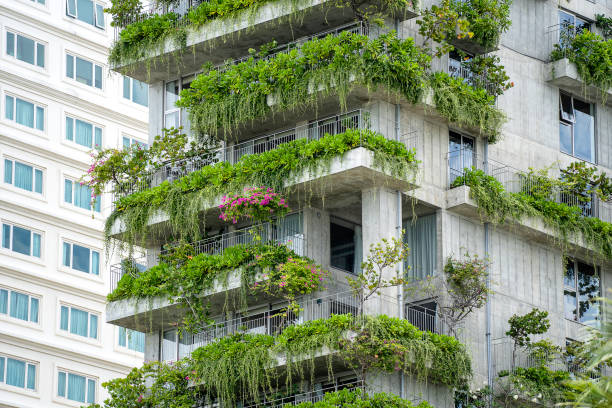In an increasingly eco-conscious world, hotels are leading the way in sustainability with innovative green initiatives. These cutting-edge programs not only contribute to environmental conservation but also appeal to travelers who prioritize eco-friendly practices. Here’s a deep dive into the most effective and forward-thinking green hotel initiatives shaping the future of sustainable accommodations.
1. Advanced Energy Efficiency Technologies
a. Smart Building Systems:
- Energy Management Systems (EMS): Utilize sophisticated EMS to monitor and optimize energy usage across the hotel. These systems adjust lighting, heating, and cooling based on real-time occupancy data, significantly reducing energy waste.
- Building Automation: Implement building automation systems that integrate with smart thermostats, lighting controls, and other energy-saving technologies to ensure efficient energy management.
b. Renewable Energy Integration:
- On-Site Solar Power: Invest in solar panels and solar thermal systems to generate renewable energy for the hotel’s operations, reducing reliance on non-renewable energy sources.
- Wind and Geothermal Energy: Explore wind and geothermal energy options for additional renewable energy sources that can further reduce the hotel’s carbon footprint.
c. High-Efficiency Lighting and Appliances:
- LED Lighting: Replace traditional lighting with LED bulbs, which consume less energy and have a longer lifespan.
- Energy Star Appliances: Equip the hotel with Energy Star-rated appliances and equipment to ensure high energy efficiency in everyday operations.
2. Comprehensive Water Conservation Strategies
a. Low-Flow and Water-Efficient Fixtures:
- Low-Flow Faucets and Showerheads: Install low-flow fixtures to reduce water consumption in guest rooms and public restrooms.
- Dual-Flush Toilets: Use dual-flush toilets that allow guests to choose between a full or partial flush, conserving water.
b. Water Recycling and Reuse:
- Greywater Systems: Implement systems that recycle greywater from sinks and showers for non-potable uses, such as irrigation and toilet flushing.
- Rainwater Harvesting: Collect and use rainwater for landscaping and other appropriate applications to reduce dependency on municipal water supplies.
c. Water Conservation Education:
- Guest Awareness Programs: Educate guests about the hotel’s water conservation efforts and encourage them to participate in initiatives such as towel and linen reuse programs.
- Signage and Communication: Use clear and informative signage to promote water-saving practices and highlight the hotel’s commitment to sustainability.
3. Zero-Waste and Circular Economy Practices
a. Comprehensive Recycling Programs:
- Multi-Material Recycling: Set up recycling stations for paper, plastics, glass, and metals throughout the hotel, making it easy for guests and staff to recycle.
- Electronic Waste Management: Implement procedures for the safe disposal and recycling of electronic waste, including old appliances and electronic devices.
b. Composting and Organic Waste Management:
- Food Waste Composting: Establish composting programs for food waste from restaurants and kitchens, turning it into nutrient-rich compost for landscaping.
- Organic Waste Separation: Train staff to separate organic waste from other types of waste, ensuring efficient composting and waste management.
c. Eliminating Single-Use Plastics:
- Plastic-Free Policies: Implement policies to eliminate single-use plastics, such as straws, cutlery, and water bottles, replacing them with reusable or biodegradable alternatives.
- Bulk Amenities: Offer amenities in bulk dispensers rather than individual plastic packaging to reduce waste.
4. Sustainable Sourcing and Eco-Friendly Products
a. Local and Organic Sourcing:
- Local Suppliers: Partner with local farmers and suppliers to source fresh, organic, and seasonal produce, reducing transportation emissions and supporting local economies.
- Eco-Friendly Products: Choose eco-friendly and sustainably produced products for guest amenities, such as biodegradable toiletries and organic cleaning supplies.
b. Green Certifications:
- Sustainable Certifications: Pursue green certifications such as Green Key, EarthCheck, or LEED to validate and enhance the hotel’s sustainability efforts.
- Eco-Label Products: Use products that carry eco-labels and certifications to ensure they meet high environmental standards.
5. Community Engagement and Environmental Stewardship
a. Local Environmental Projects:
- Partnerships with NGOs: Collaborate with local environmental organizations to support conservation projects, such as beach clean-ups or wildlife protection initiatives.
- Community Involvement: Engage with the local community to promote sustainability and environmental awareness through events and educational programs.
b. Green Volunteer Programs:
- Guest Participation: Offer guests opportunities to participate in green volunteer programs, such as tree planting or local clean-up events, enhancing their travel experience and contributing to environmental efforts.
- Employee Volunteering: Encourage staff to participate in community service and environmental projects, fostering a culture of sustainability within the hotel.
c. Transparent Reporting and Communication:
- Sustainability Reports: Publish regular sustainability reports detailing the hotel’s environmental impact, achievements, and future goals.
- Guest Communication: Clearly communicate the hotel’s green initiatives and achievements to guests through marketing materials, websites, and in-room information.
6. Green Building and Renovation Practices
a. Sustainable Building Materials:
- Eco-Friendly Materials: Use sustainable building materials, such as recycled or certified wood, low-VOC paints, and energy-efficient windows, during construction and renovations.
- Design for Efficiency: Incorporate design features that enhance energy efficiency, such as natural lighting, passive solar heating, and high-performance insulation.
b. Green Building Certifications:
- LEED Certification: Aim for LEED certification for new buildings or major renovations to demonstrate commitment to green building practices.
- BREEAM Certification: Consider BREEAM certification to ensure comprehensive sustainability in building design, construction, and operation.
Conclusion
Green hotel initiatives are transforming the hospitality industry by integrating sustainable practices into every aspect of hotel operations. By embracing advanced energy efficiency technologies, water conservation strategies, zero-waste practices, sustainable sourcing, and community engagement, hotels can significantly reduce their environmental impact and appeal to eco-conscious travelers. Implementing these cutting-edge programs not only benefits the environment but also enhances the overall guest experience, positioning your hotel as a leader in sustainable hospitality.
